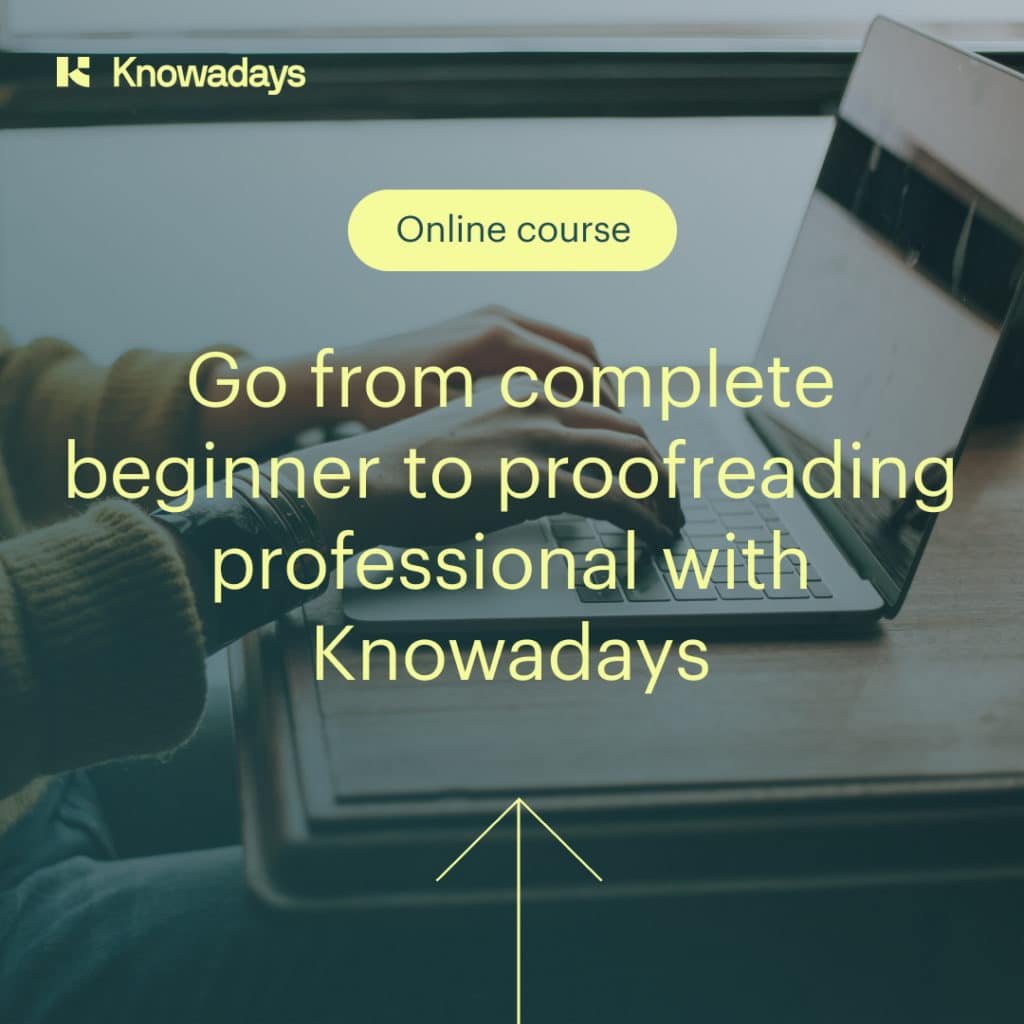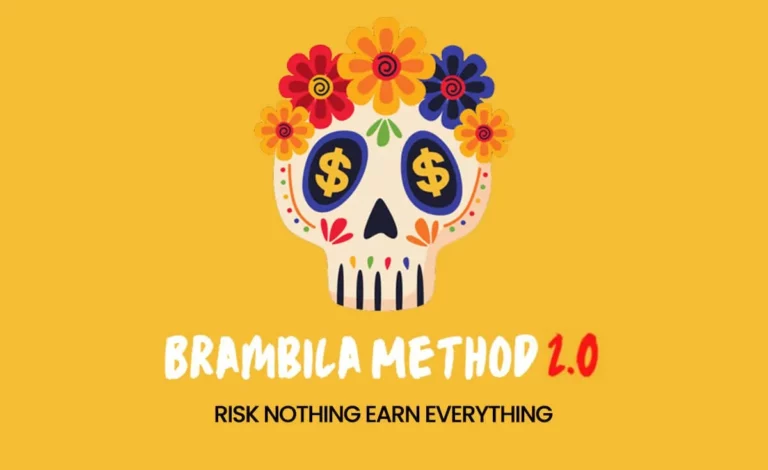Start a Proofreading Side Hustle: 14 Best Online Proofreading Jobs for Beginners
Table of Contents
What is proofreading?
Proofreading is basically the act of reviewing written materials to find and fix errors in grammar, spelling, punctuation, and formatting. It’s a crucial step in the publishing process because it helps make sure the final product is top-notch and free of mistakes. As a proofreader, you’ll be working with authors, editors, publishers, or other clients to review and revise written materials.
To be a successful proofreader, you’ll need to have a keen eye for detail and a knack for spotting errors. Excellent grammar and spelling skills are a must to spot grammar mistakes, and it’s also helpful to be familiar with style guides and formatting conventions. Some proofreaders use proofreading software or other tools to help them out, too.
Basically, if you love language and have a passion for making written materials shine, proofreading might be a great gig for you!
Proofreading vs. Editing
So, you might have heard the terms ‘proofreading’ and ‘editing’ used interchangeably, but they’re actually two different things.
Proofreading is all about catching and correcting errors in grammar, spelling, punctuation, and formatting. It’s the last step in the writing process, and it’s all about making sure the final version of a document is error-free before it’s published or distributed.
Editors, on the other hand, do a more comprehensive review of a document. They look at the content, clarity, organization, and style of a document and suggest changes where needed. Editing can involve more than just fixing errors; it can also involve restructuring sentences, rephrasing ideas, or adding or deleting content.
Both editing and proofreading are important steps in the publishing process, and they can help make sure your written materials are accurate, clear, and effective. Just keep in mind that proofreading is all about catching errors, while editing is about improving the overall quality of a document.
The benefits of starting a proofreading side hustle
Flexibility: One of the biggest advantages of starting a proofreading side hustle is the flexibility you get with being your own boss. As a freelance proofreader, you can choose when and where you work, and you can take on as much or as little work as you want. You can literally start a proofreading business while traveling the world or proofread from home in your free time. This makes it an ideal side hustle for people who want to earn extra income on the side while still maintaining a full-time job or other commitments.
Skills development: Proofreading requires strong attention to detail and good grammar and spelling skills, and starting a proofreading side hustle can help you hone these skills and improve your overall language ability. As you work on different projects and learn from your clients, you can develop new skills and expertise that can be valuable in other areas of your career.
Financial opportunities: Starting a proofreading side hustle can also provide financial opportunities. Starting a proofreading side hustle comes with very low startup costs and you get to set your own rates and earn money for the work you do. With experience and a strong reputation, you may be able to increase your rates and take on higher-paying projects.
Professional experience: Working as a proofreader can also add valuable experience to your professional resume. Proofreading is a highly sought-after skill in a variety of industries, and having proofreading experience can make you more competitive in the job market.
Personal satisfaction: This one’s true for any side hustle but I’m still including it here. If you enjoy language and have a passion for helping others improve their writing, proofreading can be a fulfilling and rewarding side hustle. You can take pride in the work you do and know that you are helping others communicate more effectively.
What skills and degrees are required to make money as a proofreader?
You might be wondering if you need any special skills or a college degree to make money proofreading. The short answer is: yes and no. On one hand, you don’t necessarily need any specific credentials such as a bachelor’s degree or training to start proofreading. However, there are certain skills that can make you more successful as a proofreader.

First and foremost, you’ll need strong attention to detail. As a proofreader, your job is to catch and correct errors, so you’ll need to be able to spot mistakes that others might miss. Good grammar and spelling skills are also important, as you’ll need to be able to identify and fix errors in these areas. Familiarity with style guides and formatting conventions can also be helpful, as different clients and industries may have different preferences in these areas.
That being said, if you don’t have a lot of experience with proofreading, you can still get started and build your skills as you go. Some people start out proofreading for friends and family to get their first proofreading job or take on small projects to get their feet wet. You can also consider taking a course or workshop to learn the basics and practice your skills. With time and practice, you can become a proficient proofreader and start making money with your skills.
How much do online proofreaders make per hour?
The amount that proofreaders make can vary widely depending on their experience, skills, and location, as well as the type of work they are doing and the clients they are working with. According to data from the Bureau of Labor Statistics, the median hourly wage for proofreaders in the United States is $20.36 as of May 2020. However, this figure may not accurately reflect the earnings of professional freelance proofreaders, who often set their own rates and work on a project-by-project basis.
Freelance proofreaders may charge by the hour, by the word, or by the page, and their rates can range from a few dollars to several hundred dollars per project. Some factors that can influence a proofreader’s rates include their level of experience, their specialty (e.g. legal proofreading, academic proofreading), and the complexity of the material they are working on.
It’s worth noting that as a freelance proofreader, you will be responsible for your own taxes and business expenses, which can cut into your earnings. It’s important to factor these costs into your pricing and to keep good records of your income and expenses.
Setting rates and managing your time
Setting rates as a freelance proofreader can be tricky, especially when you’re just starting out and haven’t yet landed lots of freelance jobs.
Here are some tips on how to set your rates:
1. Research Market Rates
Before setting any rates, take some time to research what other proofreaders charge in your area or industry. This will give you an accurate idea of the going rate and help you determine how much you should charge for your services.
2. Consider Your Skillset
Don’t forget to factor in your own skillset when setting rates. If you have more experience than other proofreaders on the market, then you may be able to charge more for your services due to your expertise.
3. Set Reasonable Goals
When creating a pricing structure for yourself, make sure that it’s reasonable and achievable within the current market conditions. For example, if most other proofreaders in the area are charging $50 per hour, don’t try to double that rate just because you think you’re worth more. Instead, set realistic goals based on what others around you are charging and tweak them as needed over time based on any changes in the market or customer demand.
4. Be Transparent
Make sure that all of your pricing is clear and upfront by communicating expectations clearly with each client before beginning a project. That way they understand exactly what they’ll be paying for and have no surprises down the line when it comes time to receive their invoice!
Tips and Best Practices to Start Proofreading for Money
Set clear terms and expectations
When working with clients, it’s important to set clear terms and expectations from the start. This can include your rate, turnaround time, and any other details that are important to you. By communicating clearly and setting clear boundaries, you can help avoid misunderstandings and conflicts down the road.
Manage your time effectively
As a freelance proofreader, you’ll need to be able to manage your time effectively. This may involve setting aside dedicated time for proofreading, setting priorities, and using tools and techniques to stay organized. It’s also important to be realistic about how much work you can take on, and to be flexible if your schedule changes.
Build a strong portfolio
As a freelancer, your portfolio is a key tool for attracting new clients. Make sure to showcase your best work and highlight any relevant experience or skills. You may also want to consider starting a blog or writing articles to demonstrate your expertise and build your online presence.
Network and market yourself
Networking and marketing yourself can help you find new clients and build your reputation as a freelancer. Consider joining professional organizations, attending industry events, and using social media and other online platforms to connect with potential clients.
Stay organized and keep records
Finally, it’s important to stay organized and keep good records as a freelancer. This can include keeping track of your income and expenses, maintaining accurate records of your projects and clients, and staying up to date with industry developments. By staying organized and keeping good records, you can save time and energy and help ensure the success of your business.
Where can I get proofreading training at home?
There are a variety of options for getting proofreading training at home, including online courses, workshops, and self-study resources. Here are a few options to consider:
Paid Online Courses
Knowadays (formerly Proofreading Academy)
Knowadays offers a comprehensive online proofreading course that covers the basics of proofreading, as well as more advanced topics such as working with clients and building a successful business as a professional proofreader.
The online course costs $399 and includes a free trial. Best of all, upon course completion, Knowadays guarantees work with its partner, Proofed. You can find more information and sign up for Knowadays here.
Read our full Knowadays review here

Proofread Anywhere
Proofread Anywhere is an online proofreading course that teaches students how to become successful freelance proofreaders. The course is taught by Caitlyn Pyle, a successful proofreader and entrepreneur who has built a successful business through proofreading. The course covers a range of topics, including how to find proofreading jobs, how to set your rates, and how to build a successful business as a proofreader.
The course includes video lessons, quizzes, and exercises to help students learn and practice their skills. Upon completion of the course, students will be equipped with the knowledge and skills needed to succeed as a freelance proofreader. Sign up for a free introduction course here.
Free Online Courses
Kickstart Your Freelance Editor & Proofreader Career on Upwork (Skillshare)
Learn from Duncan Koerber’s experiences as a freelance editor and proofreader on Upwork in 22 easy-to-follow lessons. This course covers a wide range of topics that are important for freelancers, such as finding proofreading jobs, getting paid, and managing your finances. In addition to these practical tips, the course also covers editing philosophies and tools that will help you succeed in your independent work. While it doesn’t come with a certificate, it’s packed with valuable insights and wisdom for freelance proofreaders and editors. You can find more information and sign up here
No matter which option you choose, it’s important to be proactive and dedicated in your learning. Proofreading requires a lot of practice, so be sure to set aside time to practice your skills and seek out opportunities to work on real-world projects.
Pros and Cons of Being a Freelance Proofreader
Being a freelance proofreader can be a rewarding and fulfilling career but like any other job, it’s not all rainbows and unicorns.
Here are some of the pros and cons of being a freelance proofreader:
Pros:
Flexible schedule – You are able to choose your own hours, allowing you to take on more or less work as needed.
Independence – You have full control over the projects you choose and how much time you spend on each one, giving you the freedom to allocate tasks and resources as needed.
Variety – No two jobs are ever the same, so you’ll always be challenged with new and interesting pieces of work.
Make Your Own Decisions – As a freelancer, you call all the shots when it comes to how you manage your business. This means there’s no need to follow strict corporate rules or answer to someone else about what projects or assignments will be taken on.
Cons:
Unpredictable Income – Since payment is based on per-project basis, income can be quite unpredictable depending on how many jobs are taken on in any given period.
Office Setup & Equipment Costs – While being a proofreader doesn’t have to come with high start up costs, setting up an entire office in your home or renting one out can cost money that may not necessarily be easy to recoup through freelancing alone. Additionally, investing in quality equipment such as computers and scanners can get pricey quickly if they break down or need replacing often.
Lack of Benefits – Freelance work doesn’t come with employee benefits like health insurance or pensions that companies typically provide their employees with. This means that it’s important to make sure your rate reflects enough money to cover these costs if needed instead of relying solely on an employer for them.
Must-Have Tools for Work-from-Home Proofreading Jobs
Microsoft Word, Google Docs, or other word processing software: This is a basic tool for making edits and suggestions on documents.
A dictionary and thesaurus: These can help you find the right words and ensure proper spelling and word usage. With everything online nowadays, you don’t need a physical dictionary anymore. Instead, consult Merriam-Webster or the Cambridge Dictionary. You can find the online Thesaurus here. Even as a good proofreader, you will often rely on a dictionary when proofreading online.
A style guide: Different industries and organizations have their own preferred style guides, such as AP, APA, MLA, and Chicago. It’s important to familiarize yourself with the style guide that is most relevant to your clients. Even experienced proofreaders can’t remember all rules of a style guide and need to double-check frequently.
Proofreading software: There are automatic proofreading tools available that can help you spot spelling and grammar mistakes and inconsistencies in documents. Some popular options include Grammarly, ProWritingAid, and Hemingway Editor. An important note about proofreading software: This type of software is a fantastic tool to spot spelling mistakes (which I use myself) but it does not replace a human proofreader. Sometimes Grammarly suggests actual grammatical errors that make no sense and you will always need to double-check everything.
A reliable computer and internet connection: This is less of a tool and more of a technical requisite. Proofreading often requires reading and editing large amounts of text with several tabs open, so it’s important to have a computer that can handle this workload. A stable internet connection is also essential for communicating with clients and accessing the tools you need. If you work on the go, invest in a laptop with a strong battery and a mobile phone plan that allows using your phone as a hotspot.
14 Best Online Proofreading Jobs From Home
Upwork
Upwork is a freelance marketplace that connects freelancers with clients looking for a variety of services, including online proofreading jobs. As a proofreader on Upwork, you can create a profile, offer your freelance proofreading services, set your own rates, and bid on job postings for writing jobs that match your skills and experience. You can also wait for clients to reach out to you with an online proofreading job and invite you to bid on their projects. Upwork takes a percentage of your earnings as a service fee.
LinkedIn is a professional networking site that can be a great resource for finding online proofreading jobs. You can create a profile and list your proofreading skills and experience, and also join relevant groups and connect with potential clients. LinkedIn also has a job search function where you can search for proofreading jobs by location, industry, and experience level.
ProofreadingPal
ProofreadingPal is a company that provides proofreading services to businesses and individuals. They often have openings for freelance proofreaders to join their team. As a proofreader for ProofreadingPal, you will be responsible for proofreading and editing a variety of documents, including academic papers, resumes, and business documents. You will need to have strong attention to detail and be able to work independently. Before being accepted on the platform, you will likely have to complete a proofreading test and editing test.
Fiverr
Fiverr is a platform that allows freelancers to offer their services to clients. As a proofreader on Fiverr, you can create a profile and offer proofreading services at various price points. Prospective clients can find your available proofreading jobs and contact you directly through the platform. As a Fiverr service provider, you set your own rates and can charge extra for tight deadlines or specialized tasks. Fiverr takes a percentage of your earnings as a service fee.
Scribendi
Scribendi is a company that offers proofreading and editing services. They occasionally have openings for freelance proofreaders to work with them on a project-by-project basis. As a freelance proofreader for Scribendi, you will be responsible for proofreading and editing a variety of documents, including academic papers, resumes, and business documents. You will need to have strong attention to detail and be able to work independently.
FlexJobs
FlexJobs is a job search site that focuses on remote and flexible job opportunities. They often have listings for proofreading and editing jobs that can be done remotely. As a proofreader on FlexJobs, you can search for job openings by location, industry, and experience level. Many of the proofreading jobs on FlexJobs are part-time or contract positions.
The Editorial Freelancers Association
The EFA is a professional organization for freelance editors and proofreaders. They offer job listings, resources, and events for members. As a member of the EFA, you can access their job board, which lists proofreading and editing jobs from a variety of industries and organizations. The EFA also offers educational resources and events to help you improve your skills and grow your proofreading business.
Contena
Contena is a job search platform specifically for creative writers, editors, and content creators. They often have listings for proofreading jobs with companies and organizations. As a proofreader on Contena, you can search for job openings by location, industry, and experience level. Many of the proofreading jobs on Contena are full-time or part-time positions with companies, rather than freelance opportunities.
Indeed
Indeed is a job search website that aggregates listings from a variety of sources. You can search for proofreading jobs by location and experience level, and also filter by job type (full-time, part-time, contract, etc.). Many of the proofreading jobs on Indeed are with companies or organizations, rather than freelance opportunities.
Glassdoor
Glassdoor is a job search website that also has company reviews and ratings. You can search for proofreading jobs and see what companies are highly rated by their employees. Many of the proofreading jobs on Glassdoor are with companies or organizations, rather than freelance opportunities.
Freelancer
Freelancer is a platform that allows freelancers to bid on a variety of project types, including proofreading. As a proofreader on Freelancer, you can create a profile and browse available jobs, or wait for clients to invite you to bid on their projects. You can also specify the types of documents you are comfortable proofreading, such as delivering a polished paper for graduate or postgraduate students, novels, or marketing materials. Freelancer takes a percentage of your earnings as a service fee.
PeoplePerHour
PeoplePerHour is a platform that allows freelancers to offer their services to clients and can be a great place to find proofreading jobs online. As a proofreader on PeoplePerHour, you can create a profile and offer proofreading services at various price points. As with other services, you can also specify which types of documents you want to proofread. PeoplePerHour takes a percentage of your earnings as a service fee.
Toptal
Toptal is a platform that connects businesses with top-tier freelancers in a variety of fields, including proofreading. To join their network, you must go through a rigorous screening process to demonstrate your skills and experience. As a proofreader on Toptal, you will work with high-profile clients on a variety of projects. Toptal takes a percentage of your earnings as a service fee.
The Proofreaders
The Proofreaders is a company that provides proofreading services to businesses and individuals. They occasionally have openings for freelance proofreaders to join their team. As a freelance proofreader for The Proofreaders, you will be responsible for proofreading and editing a variety of documents, including academic papers, resumes, and business documents. You will need to have strong attention to detail and be able to work independently.
How To Get Online Freelance Proofreading Jobs for Beginners
Finding your first online proofreading jobs can seem like an impossible task when you’re just getting started earning money proofreading. Follow the tips below to get into the world of online proofreading and land your first freelance proofreading job.
Build your skills
As an online proofreader, you will need to have excellent attention to detail, good grammar and spelling skills, and the ability to work independently. Consider taking a proofreading course or workshop to learn the fundamentals and practice your skills.
Create a portfolio
As a beginner, you may not have a lot of experience to show off, but you can still create a portfolio of your work. This can include writing samples, projects you’ve worked on for school or personal use, or even mock-ups of proofreading projects you’ve created.
Set up a proofreading business
If you plan to work as a freelance proofreader, you’ll need to set up your own business. This may involve creating a website, setting up social media accounts, and creating a pricing structure. You may also want to consider creating a business plan and marketing plan to help you attract clients.
Find online proofreading jobs
There are a number of websites and platforms that can help you find online proofreading jobs as a beginner (see above). Some options include Upwork, LinkedIn, ProofreadingPal, Fiverr, and Scribendi. You can also try reaching out to local businesses and organizations to see if they have any proofreading needs and land your first proofreading assignments this way.
Network and build your reputation
As a beginner, it can be helpful to build relationships with other proofreaders, writers, and editors. You can join professional organizations, attend events and conferences, and participate in online communities to connect with others in the industry. Building your reputation as a reliable and skilled proofreader can also help you attract more clients. Consider offering discounted rates or pro bono work to get started, and ask satisfied clients to leave reviews or refer you to others in their network.
Keep learning and improving
As a proofreader, it’s important to continue learning and improving your skills. This can involve taking additional courses or workshops, reading industry publications, and staying up to date with best practices and technology. By continually learning and improving, you can stay competitive in the marketplace and increase your value to clients.
FAQs:
Do I need to have a degree to proofread?
The short answer is no, you don’t necessarily need a bachelor’s degree or graduate degree to work in this field. While some proofreaders attended an English language graduate degree program or journalism, it’s definitely not a requirement to get started. In fact, many proofreaders are self-taught or have learned through courses or workshops.
The most important things for a successful proofreader are a keen eye for detail, excellent grammar and spelling skills, and the ability to work independently. If you’ve got those qualities and you’re willing to learn and improve, you can succeed as a proofreader no matter what your educational background is.
Just be aware that some clients or employers might also prefer to work with proofreaders who have a degree or formal training. Don’t let it discourage you if a potential client rejects you because you don’t have a degree – there are plenty more opportunities out there.
How much does it cost to proofread 1000 words?
The cost of proofreading can vary depending on a number of factors, including the complexity of the document, the turnaround time, and the experience and credentials of the proofreader.
As a general rule of thumb, you can expect to pay anywhere from $10 to $100 to have 1000 words proofread, depending on the factors mentioned above.
How long does it take to proofread 1000 words?
The amount of time it takes to proofread 1000 words will depend on a number of factors, including the complexity of the document, the experience and skill level of the proofreader, and the specific errors or issues that need to be addressed.
A professional proofreader should be able to proofread 1000 words in about 25 minutes to an hour. However, if the document is particularly complex or if it has a lot of errors, it could take longer.
Can you make money proofreading?
Yes, it is possible to make money proofreading. Proofreading is a skill that is in high demand, particularly as the demand for written content continues to grow. As a proofreader, you can work with clients to review and revise written materials for errors in grammar, spelling, punctuation, and formatting.
You can work with a variety of clients, including businesses, authors, students, and more. To succeed as a proofreader, you’ll need to have strong attention to detail, excellent language skills, and the ability to work independently. With the right skills and experience, you can make a good income as a proofreader.
How much can you make as a proofreader?
As a proofreader, the amount of money you can make will depend on a variety of factors, including your skills, experience, and the demand for proofreading services.
Some factors that can impact your income as a proofreader include:
Your hourly rate: Your hourly rate is the amount you charge for your proofreading services. This will depend on a variety of factors, including your skills, experience, and the market rates for proofreading services.
The amount of work you do: The more work you do as a proofreader, the more money you can make. This will depend on your ability to find clients and secure projects, as well as your efficiency and productivity.
Your specialization: Specializing in a particular area of proofreading, such as legal documents or academic papers, can help you command higher rates and increase your income.
It’s difficult to give a specific estimate of how much you can make as a proofreader, as it will depend on your individual circumstances. Some proofreaders may earn a few hundred dollars per month, while others may earn much more. It’s important to be realistic about your income potential and to be prepared to put in the time and effort to build a successful business.






